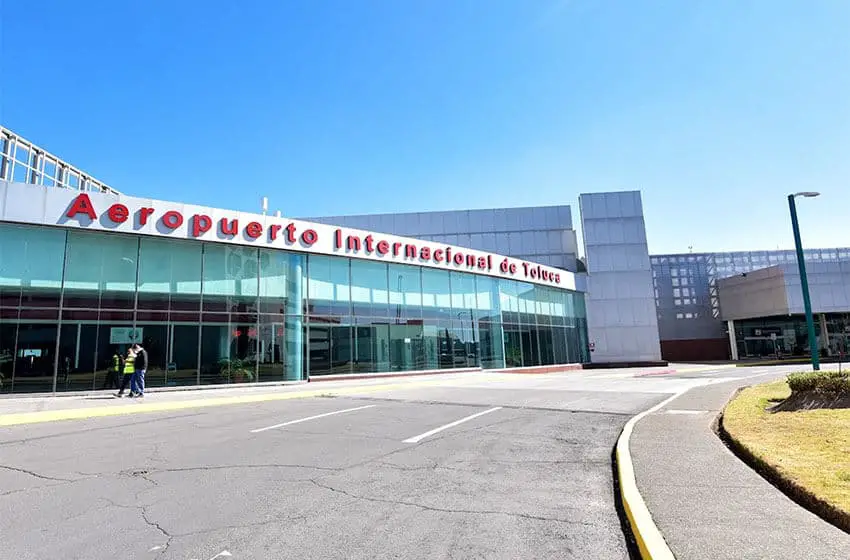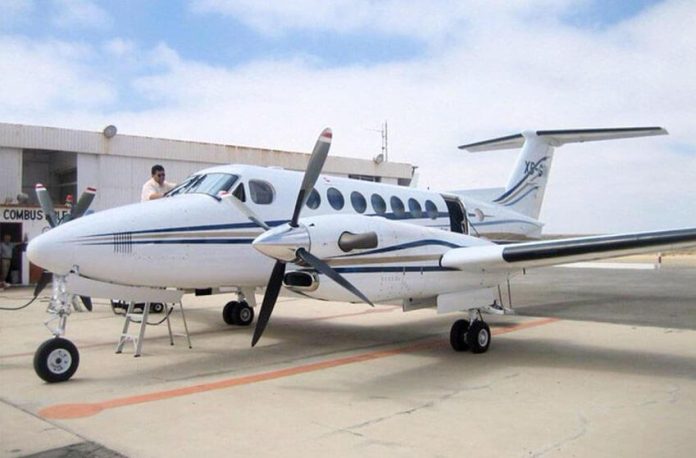In another blow to the United States’ anti-narcotics efforts in Mexico, federal authorities have effectively forced the Drug Enforcement Administration (DEA) to withdraw its Mexico-based aircraft.
Citing three unnamed sources, the news agency Reuters reported that the DEA has stopped stationing its anti-narcotics plane at the airport in Toluca, México state, because its parking spot was rescinded.
A United States government official and two security officials with knowledge of the issue told Reuters that the DEA’s twin-turboprop King Air plane has been moved to Texas. They requested anonymity because they were not authorized to speak about the issue.
The withdrawal of the parking slot comes after Reuters revealed in April that the Mexican government last year disbanded a United States-trained elite anti-narcotics unit that collaborated with the DEA for almost 25 years. President López Obrador said the unit was infiltrated by organized crime.
The DEA had stationed its own aircraft in Toluca since at least the early 1990s, using the planes in operations against Mexico’s notorious drug cartels. Reuters reported that the planes were used to transport both U.S. agents and elite Mexican units to time-sensitive raids.
The Beechcraft plane has the capacity to carry about 10 people and was used in operations in Mexico and Central America. Reuters said it played a key role in capturing powerful cartel capos and was used in raids against Joaquín “El Chapo” Guzmán, the former Sinaloa Cartel honcho who is now in prison in the United States.
Two DEA pilots were on standby at all times, the news agency said, adding that the agency’s aircraft were used to rescue agents facing death threats in Mexico.
A security source told the news agency that problems with the King Air plane began shortly after López Obrador took office in late 2018.
The National Defense Ministry, which controls Mexican airspace, began demanding in 2019 that the U.S. government submit a written request two weeks before any flight. The Reuters source said that the requirement made missions unworkable because anti-narcotics operations demand flexibility and speed.
The DEA lobbied the Ministry of Foreign Affairs for the requirement to be dropped but was unsuccessful and the use of its plane consequently stagnated.
The U.S. government official told Reuters that the anti-drugs agency moved the aircraft about a month ago after the federal Attorney General’s Office (FGR) asked it to relinquish its space in the FGR hangar at the Toluca airport.

The absence of a DEA plane in Mexico “will bring things to a halt,” one of the security sources said. “We can’t drive through parts of Mexico, it’s too dangerous.”
Leonardo Silva, a former DEA agent who worked in Mexico, told Reuters that the plane was “invaluable to our missions.”
“It’s very important to the DEA’s ability to function and be effective in Mexico,” he added.
Another unnamed former DEA agent who worked in Mexico told Reuters that the absence of a DEA plane in Mexico would likely place extraditions of traffickers at risk because the agency often only has hours to take drug lords to the U.S. before their lawyers initiate proceedings that complicate the process.
López Obrador has accused the DEA and other U.S. authorities of failing to respect Mexico’s sovereignty while operating in the country.
“We maintain cooperation with international security organizations but we make sure our sovereignty is respected. Before they entered and left the country and did … what they wanted, they even fabricated crimes,” he said in late April.
“… It’s no longer the time of those operations, like ‘Fast and Furious,’” López Obrador said, referring to the 2009-2011 scheme under which the United States government allowed people to buy guns illegally in the U.S. and smuggle them into Mexico so that the weapons could be tracked and law enforcement officials could locate and arrest crime bosses.
The federal government’s security relationship with the United States soured in late 2020 when the U.S. arrested former defense minister Salvador Cienfuegos on drug-related charges. The charges were dropped and Cienfuegos was returned to Mexico, where he was cleared of wrongdoing, but the federal government nevertheless enacted a law that restricts and regulates the activities of foreign agents in Mexico. Some observers said the law was retaliation for the arrest of Cienfuegos.
Notwithstanding Mexico’s limitations on and reduced cooperation with the DEA, bilateral security relations have improved since the low point precipitated by the former defense minister’s arrest, with the two countries entering into a new security agreement last December.
With reports from Reuters
